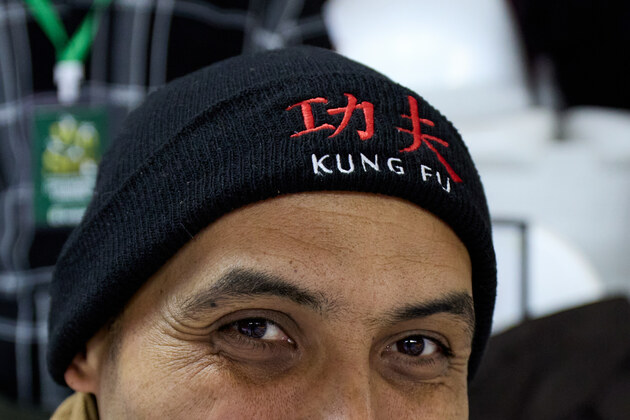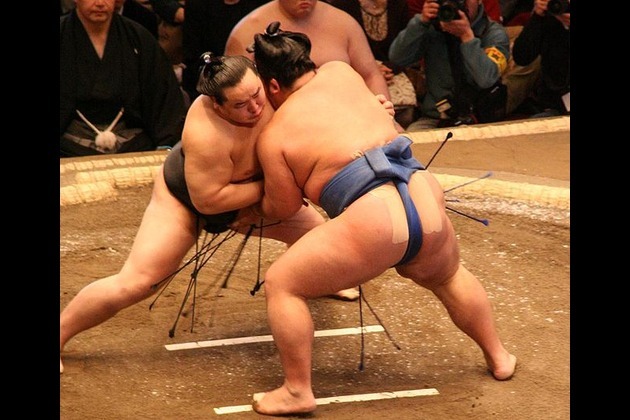In Marine Biological Diversity of Areas Beyond National Jurisdiction, No Single State Bears Sovereignty, All Share Responsibility, Says Speaker at Panel
Press UN
13 Jun 2025, 21:31 GMT+10

NICE, FRANCE, 13 June — The “constitution of the ocean” has offered a stable — yet flexible — legal architecture for that domain, speakers at the final panel of the 2025 UN Ocean Conference said today, as they identified the need for more regulations and protections in areas ranging from the deep seabed to the human rights of ocean defenders.
“Enhancing the conservation and sustainable use of oceans and their resources by implementing international law as reflected in the United Nations Convention on the Law of the Sea (UNCLOS)” was the theme of the tenth panel discussion of the Conference, which was held shortly before its final plenary. Moderated by François Alabrune, Ambassador of France in The Hague, it brought together legal experts and scientists, all of whom agreed on the vital role of the Convention.
Elinor Hammarskjöld, Under-Secretary-General for Legal Affairs and United Nations Legal Counsel, noted how the Convention on the Law of the Sea has risen to the challenge of keeping up with political, social, natural and scientific advancements affecting the marine environment and its many stakeholders, who range from States to fishing communities to scientists. The adoption by consensus of the Agreement on Marine Biological Diversity of Areas beyond National Jurisdiction remains a significant achievement, with its scope of application covering nearly two thirds of the ocean. She also noted the ongoing negotiations towards reducing plastic pollution and the International Maritime Organization’s (IMO) greenhouse gas emissions reduction strategy, among others — these pacts and others were enabled by the Convention on the Law of the Sea, she said.
In areas beyond national jurisdiction, no single State bears sovereignty, and all share responsibility, Leticia Carvalho, Secretary-General, International Seabed Authority, said. “I am not a lawyer, I am an oceanographer who deeply believes in the law”, she said, drawing attention to Part XI of the Convention, which, together with the 1994 Agreement, enshrines the deep seabed as the common heritage of humankind. That area is 54 per cent of the ocean, and is “the planet’s only global commons”, she pointed out. The International Seabed Authority, as the sole international body with the mandate to organize and control mineral-related activities in the deep seabed, is central to upholding this principle.
Through its Marine Scientific Research Action Plan, adopted by all its 169 member States, the Authority is expanding research, technology transfer and open access to deep-sea data. “Capacity-building and technology transfer are not optional — they are legal obligations under UNCLOS”, she said, adding that every exploration contract includes mandatory training for nationals of developing countries. The deep seabed cannot become the Wild West, she reiterated.
Grethel Aguilar, Director-General of the International Union for Conservation of Nature and Natural Resources, stressed the need to focus on “human rights and the Law of the Sea”. This means working with those most affected by sea-level rise, destructive fishing practices and pollution. It also means supporting “ocean defenders”: the individuals, groups and communities of small-scale fishers and Indigenous Peoples who are actively protecting the marine environment. She highlighted the advisory opinion of the Inter-American Court of Human Rights with regard to climate change and human rights, which affirmed that States do have the obligation to protect human rights in the context of the climate emergency.
“For many Indigenous communities, protecting the ocean is a spiritual responsibility”, she said, adding that for cultures in the Pacific islands, the ocean is a sacred space, intricately linked to spirituality and tradition. “If we fully understood our connection to the sea and our dependency on the marine environment — and sought the wisdom of Indigenous Peoples and coastal communities — we would see the ocean not just as a source of resources, but also the backbone of meaning, identity and cultural heritage”, she added.
She also pointed out that implementing the Agreement on Marine Biological Diversity of Areas beyond National Jurisdiction will need “truly inclusive governance structures”. “We have to think practically when we approach the timing and organization of future COPs [Conferences of the Parties]”, she said, noting that small island delegations and representatives of Indigenous Peoples groups simply do not have the human and financial capacity to attend multiple conferences every year. Her Union has been actively engaged from the start, providing scientific and legal expertise and supporting countries, particularly in the Pacific and eastern and southern Africa, in their negotiation, ratification and implementation processes. It is also developing an explanatory guide to that Agreement to make its complex provisions accessible, she added.
Lan-Anh Nguyen, Vice-President of the Asian Society of International Law and Law of the Sea Convention’s Annex VII Arbitrator noted that the Convention provides the “fundamental legal architecture” of the marine environment, because it implements the obligation of sustainable exploitation of marine resources — either in maritime zones that fall within national jurisdictions or in the high seas. It also implements the obligation to protect and preserve the marine environment and take measures to prevent and reduce pollution. Finally, it also promotes marine scientific research and technology transfer to enhance the capacity of developing countries.
The interplay of the Law of the Sea Convention with the Convention on Biological Diversity and other agreements have created a layered legal architecture. However, she also noted the gap between the current legal regime and the latest marine technologies — from satellite remote sensing to artificial-intelligence-based maritime surveillance. It is vital to bring science into treaty-making earlier rather than later, she advised.
The panel was co-chaired by Heraldo Muñoz, former Minister for Foreign Affairs of Chile and that country’s Special Envoy for the Ocean, and Penelope Ridings, Member of the International Law Commission. Kentaro Nishimoto, Professor, School of Law, Tohoku University, Japan; Daniel Wilde, Head of Ocean, Commonwealth Secretariat; and Nathaniel Khng, Minister-Counsellor (Legal) from the Permanent Mission of Singapore to the United Nations offered additional remarks as lead discussants. The panel was followed by an interactive discussion featuring representatives of Member States, as well as civil society speakers.
 Share
Share
 Tweet
Tweet
 Share
Share
 Flip
Flip
 Email
Email
Watch latest videos
Subscribe and Follow
Get a daily dose of Chile Sun news through our daily email, its complimentary and keeps you fully up to date with world and business news as well.
News RELEASES
Publish news of your business, community or sports group, personnel appointments, major event and more by submitting a news release to Chile Sun.
More InformationSouth America
SectionIndia records four medals at 2025 ISSF World Cup in Munich, finishes third in medal tally
Munich [Germany], June 16 (ANI): The 36-member Indian contingent showcased a strong performance at the third 2025 ISSF World Cup in...
AFC Women's Asian Cup 2026 Qualifiers: Crispin Chettri announces 24-member travelling squad to Thailand
New Delhi [India], June 16 (ANI): The Indian senior women's team head coach, Crispin Chettri, on Monday announced a 24-member travelling...
Indian women's hockey team ready to give it all against mighty Argentina
London [UK], June 16 (ANI): After a narrow defeat against Australia, the Indian women's hockey team is set to give their all against...
(SP)ARGENTINA-BUENOS AIRES-NATIONAL WUSHU CHAMPIONSHIPS
(250616) -- BUENOS AIRES, June 16, 2025 (Xinhua) -- A supporter wears a hat with Kung Fu during the National Wushu Championships of...
(SP)U.S.-NEW JERSEY-FOOTBALL-FIFA CLUB WORLD CUP-PALMEIRAS VS FC PORTO
(250616) -- NEW JERSEY, June 16, 2025 (Xinhua) -- Palmeiras' Gustavo Gomez (L) vies with FC Porto's Samu Aghehowa during the Group...
(SP)HUNGARY-BUDAPEST-JUDO-WORLD CHAMPIONSHIPS-MEN'S 73KG
(250616) -- BUDAPEST, June 16, 2025 (Xinhua) -- Joan-Benjamin Gaba (top) of France and Daniel Cargnin of Brazil compete during the...
World
SectionOne Briton survived Air India crash that killed 241 in India
NEW DELHI, India: Ramesh Viswashkumar, a 40-year-old British national, has been identified as the sole known survivor of the Air India...
Rajasthan’s city records scorching 47.3°C, as India faces heatwave
NEW DELHI, India: A scorching heat wave is engulfing northern India, with temperatures rising well above normal and causing significant...
Kennedy ousts entire CDC vaccine panel amid conflict claims
WASHINGTON, D.C. U.S. Health Secretary Robert F. Kennedy Jr. has dismissed all 17 members of the CDC's Advisory Committee on Immunization...
Japan celebrates new sumo grand champion
TOKYO, Japan: Japan has a new top sumo wrestler — and he's Japanese. Onosato, who weighs 191 kilograms (421 pounds), has become a yokozuna,...
Fire contained in building near Seoul’s Jogye temple, treasures spared
SEOUL, South Korea: A fire broke out this week in a building near the historic Jogye Buddhist temple in Seoul. The building holds some...
242 onboard London-bound Dreamliner dead in India’s worst air tragedy
AHMEDABAD, WASHINGTON: An Air India Boeing 787-8 Dreamliner, carrying 242 people, crashed just after taking off from Ahmedabad airport...













